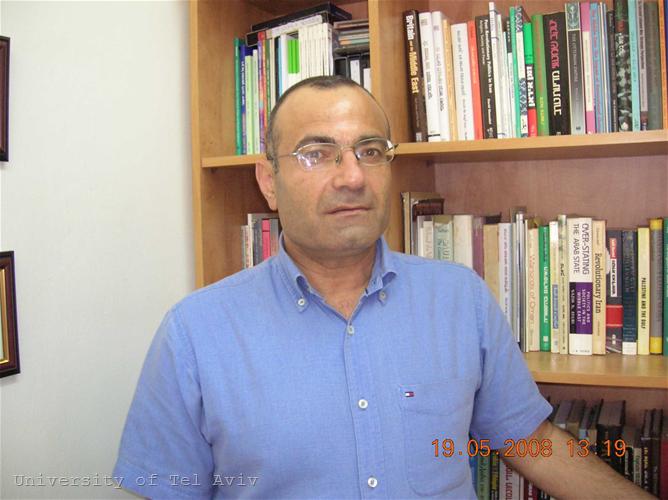Arab Revolutions: Accomplishments and Effects
Dragomir Ivanov, January 19, 2012
 These days the people in Tunisia are again in the streets. This time for a celebration: the first anniversary since the fall of dictator Ben Ali. One year ago street vendor Mohamed Bouazizi set himself on fire and triggered a powerful wave of protest started in North Africa that reached the Middle East too. The region, considered stable for long because of its authoritarian regimes and "resistance" to democracy, found itself in the centre of epic changes which the world called “Arab spring”.
These days the people in Tunisia are again in the streets. This time for a celebration: the first anniversary since the fall of dictator Ben Ali. One year ago street vendor Mohamed Bouazizi set himself on fire and triggered a powerful wave of protest started in North Africa that reached the Middle East too. The region, considered stable for long because of its authoritarian regimes and "resistance" to democracy, found itself in the centre of epic changes which the world called “Arab spring”.
The despotic rulers that governed for decades in Tunisia, Egypt and Libya are gone and for some of them (like Muammar Gaddafi in Libya) the end was physical. The region, however, remains tense and there hardly is a ruler between Casablanca and Kuwait who is not being haunted by the nightmare of a sweeping revolution.
In Tunisia, Egypt and Libya the new rulers currently take efforts to gain public trust by involving as much as possible the civil actors in the political process. In Morocco, Jordan and Kuwait the governments make constant concessions to the opposition. On the other side, the oil and gas rich Saudi Arabia and Bahrain are putting their efforts in crisis management through generous gifts for the people while there too the perspective for long-lasting stability is fading.
In the long term, the essential question for the region is whether Tunisia and Egypt will hold on to the democratic transformations and to what extent Libya is capable to escape the “Iraqi type” of transition. In the short term, stability depends on putting an end to the spiral of violence in Syria and Yemen.
The unfinished revolutions
Tunisia seems to be again the first to take up the baton. There, an interim president was elected – human rights activist Moncef Marzouki - and free parliamentary  elections took place. The victory of the Islamic Al-Nahda party, that formed a government, is subject of considerations but obviously the moderate Islamists will be the new key actor in the region. Organised and well-accepted by the broader public, they rapidly shelter the disappointed from the previous (and interim) rulers.
elections took place. The victory of the Islamic Al-Nahda party, that formed a government, is subject of considerations but obviously the moderate Islamists will be the new key actor in the region. Organised and well-accepted by the broader public, they rapidly shelter the disappointed from the previous (and interim) rulers.
Egypt for now confirms the rule that putting an end to a dictatorship does not necessarily lead to victory of democracy. There, the protests go on and the interim government of the High Military Council continues to respond with violence. All this increases the frustration among people. For the young Egyptians on Tahrir square Hosni Mubarak was the civil face of the army and it decided to take power off him. it is logical then, a majority to start seeking for hope with the Muslim Brotherhood, whose political wing – the Freedom and Justice Party - turned out to be the winner in the three phases of the parliamentary elections.
“Egypt is an unfinished revolution”, reminded yet in November 2011 participants in a round table, organised in Istanbul by UK’s institute for international politics Chatham House. The conclusions state that Mubarak’s fall has been a revolt that now has to evolve to a revolution – both an economic and social revolution.
 In the Maghreb, most difficult seems to be the situation in Libya. Following Gaddafi’s murder an interim government has been formed, led by university professor Abdurrahim El-Keib. It will rule the country until elections for a founding assembly are held this summer. But bloodshed is going on. The former rebels are fighting for power and control over the national resources. El-Keib has practically no grip over the numerous revolutionary brigades that fight even in the capital Tripoli. Single tribes and groups do not accept the government, saying that their representation in it is insufficient.
In the Maghreb, most difficult seems to be the situation in Libya. Following Gaddafi’s murder an interim government has been formed, led by university professor Abdurrahim El-Keib. It will rule the country until elections for a founding assembly are held this summer. But bloodshed is going on. The former rebels are fighting for power and control over the national resources. El-Keib has practically no grip over the numerous revolutionary brigades that fight even in the capital Tripoli. Single tribes and groups do not accept the government, saying that their representation in it is insufficient.
Syria: the new eye of the storm
The old Arabian dictum “There is no war without Egypt and no peace without Syria” is recently obtaining a particular meaning. Syria is the new eye of the storm: in 10 months the victims from the unrests amounted to 5000. The secular regime of ophthalmologist Bashar al-Assad is still being supported by religious minorities – mostly by Alewits, the stem of his dynasty. For those tiny communities - the Alewits, the Druzes and some of the Shias - the crush of the regime would mean a tragedy as they  fear persecutions by the Sunni majority. No wonder that a number of atrocities against the protesters are actually committed by paramilitary squads of the minorities.
fear persecutions by the Sunni majority. No wonder that a number of atrocities against the protesters are actually committed by paramilitary squads of the minorities.
In contrast to Libya, the events in Syria directly concern the country’s neighbours. Damascus supported both financially and logistically the radical Palestinian groups Hamas and Hezboullah but it did not hesitate to announce that it would fight “terrorist groups”. A possible fall of the Ba’ath regime will strike a serious blow on Iran, too, the country being the most important ally of Bashar al-Assad in the Middle East. This will shatter the Sunni-Shia balance and move the Kurdish question higher on the agenda. Up until now, for a considerably long time the Kurds were staying away from the unrests but since last October they sporadically join the protests against Al-Assad.
The situation in Syria is increasing Turkey’s role, too. Ankara does not perceive anymore Damascus as a friend but is pressing for Bashar al-Assad's withdrawal. Turkey hosted the main opposition body – the Syrian National Council - and just a couple of days ago provided asylum to Syrian army refugee Gen. Mustafa Ahmad al-Sheikh who took the lead of the opposition’s military council.
Despite the fear of Syrian weapons, until recently Israel considered Bashar al-Assad predictable. Tel Aviv is praying now Islamists not to take control in Damascus as well. Russia, on its turn, is worried about its arms and oil deals (the Tatneft concern, for instance, is interested in investing $13 billion in a Syrian oil field). To boost its fading image in the region Moscow has sent the aircraft-carrier “Admiral Kouznetsov” in the Syrian port of Tartus – the only Russian military base in the Middle East. For Kremlin the end of Al-Assad's regime would mean a loss of an important ally and Russia will have to rely on Algeria only.
The signs point at 46-old Bashar-al Assad leaving his throne. He intends, however, to play the “carrot and stick” up to the very last moment. For instance, he promised a referendum for a new constitution and elections in spring, as well as amnesty for the crimes committed during the revolts, including for army deserters if they surrender voluntarily. It is difficult to predict the effects of these promises but they clearly point at a feverish search for means to delay the doom of the regime.
Yemen: amnesty and Al Qaeda mockery
One of the possible scenarios for withdrawal of Bashar al-Assad could be provided in Yemen. The only thing is that what happened there can hardly be described as democratic. After 33 years in power, a year of bloodshed and a close encounter with death, following a shooting in his residence last June, the 69-year old president of Yemen, Ali Saleh, surrendered in exchange for immunity. The paradox is that the new  government, led by former foreign minister Mohammed Basindawa, promised a full pardon not only to Saleh but to all state officials that served under his regime. The measure practically wipes out the will for democratisation and ties the hands of the next government.
government, led by former foreign minister Mohammed Basindawa, promised a full pardon not only to Saleh but to all state officials that served under his regime. The measure practically wipes out the will for democratisation and ties the hands of the next government.
The main challenge before the chaos-swept country is to preserve its integrity and stand against Muslim extremism. Formally ended in the 1990s, the civil war between the North and the South of the country is going on and the central role in the anti-Saleh revolts is played not by his political opponents but by separatists and Islamists. It is well known that Al Qaeda is managing its operations on the Arab peninsula exactly from Yemen and that in vast areas of the country the warriors of Allah feel just like home. Just days ago they openly mocked the central authorities (with the entire conditionality of the notion with regard to the current situation) by occupying a town at 160 km distance from the capital of Sana’a.
Lessons for the US and Europe
The unabating revolts/revolutions in the Arab world pose heavy tasks before the Western countries. If we pay attention to what Arab analysts say, we will perceive clear criticism to the confused European approach. Worsening of the situation in Syria and Yemen will raise the pressure on EU to act. At the same time, EU’s capability to effectively influence the developments in the region is rather limited.
In other words, the big question is not whether Arabs are ripe for democracy but whether the US and Europe are ready to accept the consequences of democracy in the Arab world. The double-standard policy that was practised by the West had left painful traces on the region. One of the most illustrated example for this were the elections in  the Palestinian Autonomy in 2006. Then the West supported the electoral process but refused to accept its results because of the victory of the radical Hamas movement in Gaza.
the Palestinian Autonomy in 2006. Then the West supported the electoral process but refused to accept its results because of the victory of the radical Hamas movement in Gaza.
While sharply condemning violence in Egypt and Syria, Europe and the US silently met the crush of protests in Bahrain. A demonstrative silence rules with regard to Saudi Arabia too, where the unrest is also looming and the death of crown prince Sultan bin Abdul-Aziz complicates the situation and provokes instability. The West has managed to discredit itself in the Libyan conflict too, mostly because of the German abstention to support NATO’s military operation.
America needs to understand that its influence in the region has collapsed to its lowest level for decades and that this opens the ground for other regional players such as Turkey, for instance. The reasons lie with the economic recession, the war in Iraq and in the close relations of Israel with authoritarian regimes (Mubarak’s Egypt, Saudi Arabia).
Europe, on its turn, needs to admit that the former geopolitical classification along the line “friends – foes” is a failure. In the last years, following US's example, Europe’s rhetoric toward the region is built on the distinction between “moderates” and “radicals”. Those who shared US and European policy toward Iran, the Middle East conflict and the anti-terrorism combat were proclaimed "moderates", while the “radicals” were those who rejected the above agenda. The Europeans gracefully closed their eyes for the weaknesses of their “friends” up to the moment when those weaknesses brought the friends down, just as it happened in Tunisia and Egypt.
 “In the future we should follow the rule: be careful with regimes that say they guarantee our geopolitical interests”, warns Volker Perthes, director of the German governmental think-tank Foundation Science and Politics (Stiftung Wissenschaft und Politik, SWP).
“In the future we should follow the rule: be careful with regimes that say they guarantee our geopolitical interests”, warns Volker Perthes, director of the German governmental think-tank Foundation Science and Politics (Stiftung Wissenschaft und Politik, SWP).
The Arab events brought also the insight that something (positive) can happen in the region without necessarily the participation of the West. The Western countries played actually no part in the revolution outbursts and their evolution. They can assist or obstruct the processes but they cannot influence the outcome of the unrests. Undoubtedly, without NATO’s operation in Libya Gaddafi’s regime would have lasted longer. But the establishment of a new dictatorship or of a new tribal-confederative system, or democracy, or the falling apart of the country depends only on Libya itself. The limited impact of foreign factors (not only the EU and the US but also Russia and China) is not necessarily a flaw.
All this, of course, does not take the responsibility off the West. A known Arab proverb says “If there’s a will there’s a way; if there’s no will – there are excuses”. Our neighbours might soon remind this to us.
 | © University of Tel Aviv
| © University of Tel Aviv | © Syrian Presidency
| © Syrian Presidency | © Présidence de la République @ L. Blevennec - P.
| © Présidence de la République @ L. Blevennec - P.